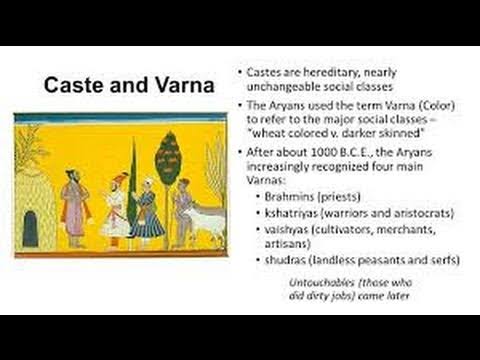Casteism – Political Science Notes – For W.B.C.S. Examination.
জাতি ভেদপ্রথা – রাষ্ট্রবিজ্ঞানের নোট – WBCS পরীক্ষা।
Casteism is one of the rural social problems, which is very peculiar to the Indian society. Indian society is a country of various religions. Each religion is sub-divided into different castes and these castes again into sub-castes. The culture of each caste varies though they all belong to one religion. Among these castes, certain are given a high status and others a low status, depending upon their caste occupation.Continue Reading Casteism – Political Science Notes – For W.B.C.S. Examination.
In such a society, there is every possibility for caste conflicts to occur. These conflicts have their origin in casteism, which refers to the hatred of one caste by the other, or the attempts made by the members of one caste to gain personal advantages to the detriment of interests of the other caste members. In brief, casteism refers to one-sided loyalty in favour of a particular caste.
Casteism leads the members of one caste to exploit the members of other caste for their own vested interest in the name of superiority or inferiority. According to R. N. Sharma, ‘casteism is a blind group loyalty towards one’s own caste or sub-caste, which does not care for the interests of other castes, and seeks to realize the social, economic, political and other interests of its own group’.
According to D. N. Prasad, casteism is loyalty to caste translated into politics. It is an overriding blind and supreme group loyalty that ignores the healthy social standards of justice, their play, equality and universal brotherhood’.
Casteism is considered as a social problem as it disturbs the sound governmental politics and democracy and paves the way for mutual group conflicts. Casteism is manifested in the form of clashes between various castes for higher share in the socio-economic privileges and power.
Causes of Casteism:
There are many causes of casteism. Some of them are as follows:
i. Casteism increases, when a particular group tends to improve the status of its own caste. In order to achieve such status, the members even adopt the most improper methods to enhance the prestige of their caste.
ii. Marital rules such as endogamy, i.e., marriage within the group is another factor. Under the caste system, which allows casteism to perpetuate, such restrictions placed on marriage forces an individual to marry within his own caste group, which brings about cohesion within the group, thereby increasing casteism.
iii. Communication between rural and urban areas became easy through urbanization. The feelings of caste were easily carried through the members from rural areas to urban areas through migration. The members of the caste have to face various problems and as a result, a need to provide security on communal basis was felt. This factor of need for security also encourages casteism.
iv. Easy access to the means of transport and communication is another factor, which contributes to the growth of casteism. Members of the same caste, who were previously not much in touch with each other, are now able to establish intimate relationships. The spread of the feeling of casteism became easy through mass media, such as newspapers, magazines, etc.
The impact of casteism on society is severe. Right from the individual to the whole nation, it affects the society as a whole.
Some of the ill-effects of casteism are as follows:
i. Casteism perpetuates the practice of untouchability and becomes an obstacle in providing social equality and justice.
ii. Casteism proves to be a threat to social order, stability, peace and harmony, in the society.
iii. Prevalence of casteism shows that the people are tradition-bound, conservative and orthodox in thinking. It may cause a hurdle to the upliftment of women because of lack of encouragement from caste-conscious groups.
iv. Casteism divides society into different segments and results in conflicts and tensions in and between these segments. These continuous conflicts and tensions between various segments hinder the development of the nation and growth of nationalism.
v. Casteism results in political disunity and affects the smooth and successful functioning of multi-party democracy like India.
vi. Casteism, indirectly, can be the cause of corruption. Members of a caste try to give all facilities to the persons, who are from their own caste and in doing so, they do not hesitate to involve in the most corrupt activities.
vii. Casteism has become an instrument in the hands of political leaders. Many political leaders, during elections, try to procure votes on communal and caste basis, rather than their own capacities and capabilities. This results in election of under-serving candidates, who do not hesitate to promote their own caste interest at the cost of common good. Thus, casteism proves to be a hindrance to democracy.
Our own publications are available at our webstore (click here).
For Guidance of WBCS (Exe.) Etc. Preliminary , Main Exam and Interview, Study Mat, Mock Test, Guided by WBCS Gr A Officers , Online and Classroom, Call 9674493673, or mail us at – mailus@wbcsmadeeasy.in
Visit our you tube channel WBCSMadeEasy™ You tube Channel
Please subscribe here to get all future updates on this post/page/category/website



 Toll Free 1800 572 9282
Toll Free 1800 572 9282  mailus@wbcsmadeeasy.in
mailus@wbcsmadeeasy.in


















































































































